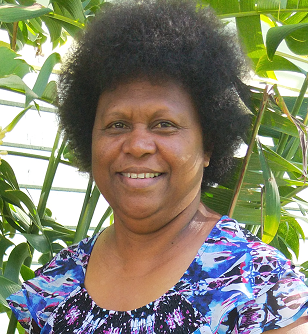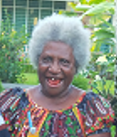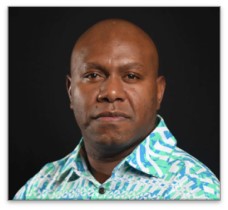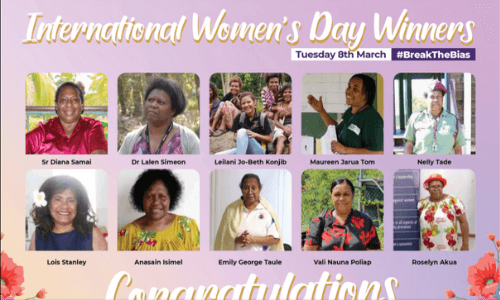Gender-equitable agricultural extension through institutions and youth engagement in Papua New Guinea
Team Members
Australia:
Assoc Prof Josephine Caffery (Project Leader)
Assoc Prof Deborah Hill (PNG/Solomon Islands Collaborator)
Prof Barbara Pamphilon (Researcher)
PNG:
Prof Lalen Simeon
In-country Project Leader

Mrs Kiteni Kusunan Kurika
East New Britain Project Leader

Mr Faulkingham Jogo
Western Province Leader

Partners
Pacific Adventist University (PAU) Papua New Guinea (PNG) who have engaged the East New Britain Women and Youth in Agriculture Cooperative Societies Association in East New Britain Province, PNG and communities within the Western Province of PNG.
To help build sustainable local farm food systems, this gender-based project is designed to strengthen the engagement of PNG youth and women farmers in their family farm, particularly in relation to developing equitable workloads and engagement in decision-making. The project is specifically designed to explore challenges and successes in building gender-equitable approaches within PNG religious institutions (churches), and to further understand the future agricultural aspirations of PNG youth.
In PNG, women smallholders undertake the major labour in farming, whilst also fulfilling valued social roles, such as family care. However, women face significant barriers in agriculture, including very few opportunities to access agricultural training, and unequal gendered family roles in labour and decision making.
Youth also face a number of barriers to productive and valued roles in agriculture, but little research has been conducted in this area to understand how youth—particularly female youth—relate to agricultural issues and how to engage these youth in agricultural futures.
With this context in mind, the following two objectives have been set:
- Objective 1: To explore and develop the capacity of PNG churches to work in a gender-inclusive way to engage rural agricultural communities in smallholder farm development.
Objective 1 is specifically designed to explore challenges and successes in building gender-equitable approaches within religious organisations in PNG. Utilising a socio-cultural, place-based participatory research process, the FFT gender-based approach will be adapted to test the suitability of selected, existing church-based programs. FFT church program leaders, in conjunction with the project team, will trial church-based FFT manuals. The trials will be monitored and evaluated using gender-focussed evaluation methods, including baseline and end-line surveys, interviews and observations, and the manuals will be adjusted based on feedback. These manuals will be distributed, and will be readily available on the project website, for other organisations to utilise and adapt, to reach more PNG women smallholder farmers.
- Objective 2: To explore and develop pathways for increasing PNG youth involvement in family farm teams and sustainable farming futures.
Objective 2 is designed to develop pathways for increasing PNG youth involvement in sustainable farming futures by empowering the youth, particularly female youth in East New Britain (ENB) farming communities, to engage further in their family farm, as well as in their family’s decision-making, and in the wider agricultural sector. The project is developing and trialling a ‘Youth as Change Agent’ capacity-building program. This program aims to enhance youth’s agricultural skills, their engagement in their family, family farm and community, and to help them set future goals and aspirations.
Collaboration with other Pacific Islands projects:
Solomon Islands
This project works in close collaboration with the current Solomon Islands project ‘Improving agricultural development opportunities for female smallholders in rural Solomon Islands’.
To test the transferability of the FFT approach to other linguistic, religious and cultural communities in the Pacific, the two project leaders will examine and compare gender challenges and enablers in agricultural environments in PNG and the Solomon Islands.
Western Province, PNG
This project collaborates and shares data with the following two projects to build a deeper understanding of the Western Province of Papua New Guinea, particularly in relation to gender and social relations in this region:
- ‘Strengthening agricultural resilience in Western Province: Mapping place-based strengths and assets’
- ‘Strengthening agricultural resilience in Western Province: Developing methods for strengths-based livelihoods approach’.
Further information on these projects can be found here.
By building a strong research collaboration between PNG participants and the research teams, this participatory action research project prioritises the empowerment of participants in an agricultural setting. It builds on participants’ own knowledge, experience, concerns, culture, and language to develop capacity-building programs based on participants needs, aspirations, assets and place.
This project’s intended outcomes for the two objectives include:
- Clear understanding by churches of synergies between the churches’ practices and the gender-equitable FFT approach
- Churches adopting the FFT approach into their existing structures
- Adoption of religious-based gender equity manual and resources by the churches for use in church activities
- Increased understanding in the agricultural sector of youth attitudes, gender roles, challenges and enablers to further engage youth in their sector
- Clearer pathways for youth involvement in family farm teams and sustainable farming futures
Media Releases
A union of religious teachings, youth engagement and agricultural extension in PNG – ACIAR blog
Lalen Simeon, our PNG in-country project leader, won a Sir Brian Bell Foundation’s 2022 International Women’s Day Leadership Award for being an inspiration to her community.
For further information on this project, please contact Assoc Prof Josephine Caffery.
Learn more about this project here.
![]()
This work is licensed under a Creative Commons Attribution-NonCommercial-ShareAlike 4.0 International License.

